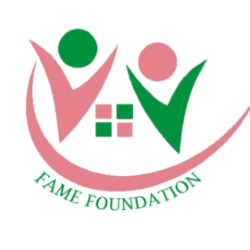

A Not-Profitable Organisation set up to formulate programmes through several initiatives to mentor, empower and advocate for women and girls.
FAME foundation was established to solicit, encourage and advance the social, emotional and economic wellbeing of women and girls as well as formulate programmes within the framework of national development plan with a view to enhancing the participation of women and advocate for gender parity in the society. FAME foundation firmly believe that the entire nation, businesses, communities and groups can benefit from the implementation of programs and policies that adopt the notion of women empowerment.
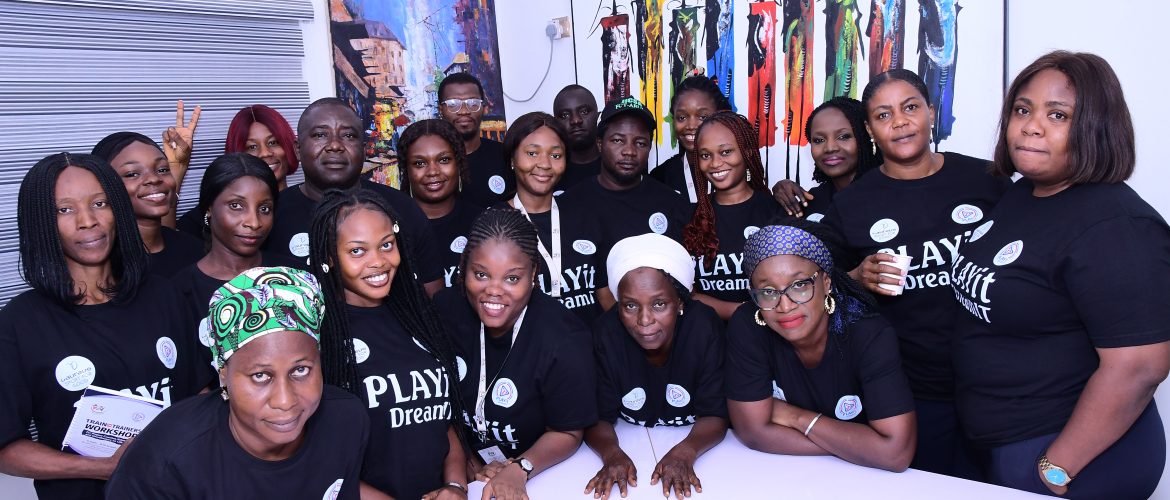

FAME Foundation, in collaboration with Laureus Sport for Good, London, launched its project activities with the Train the Trainers Workshop.
The two-day program was held on June 13-14, 2024, at the FAME Hub and Area 3 football pitch in Garki, Abuja.
On the first day of training at FAME Hub, led by Coach Ilerika Haruna Usman who educated the participants about Sports, health benefits of sports, safety in sports, and how to handle children in sports.
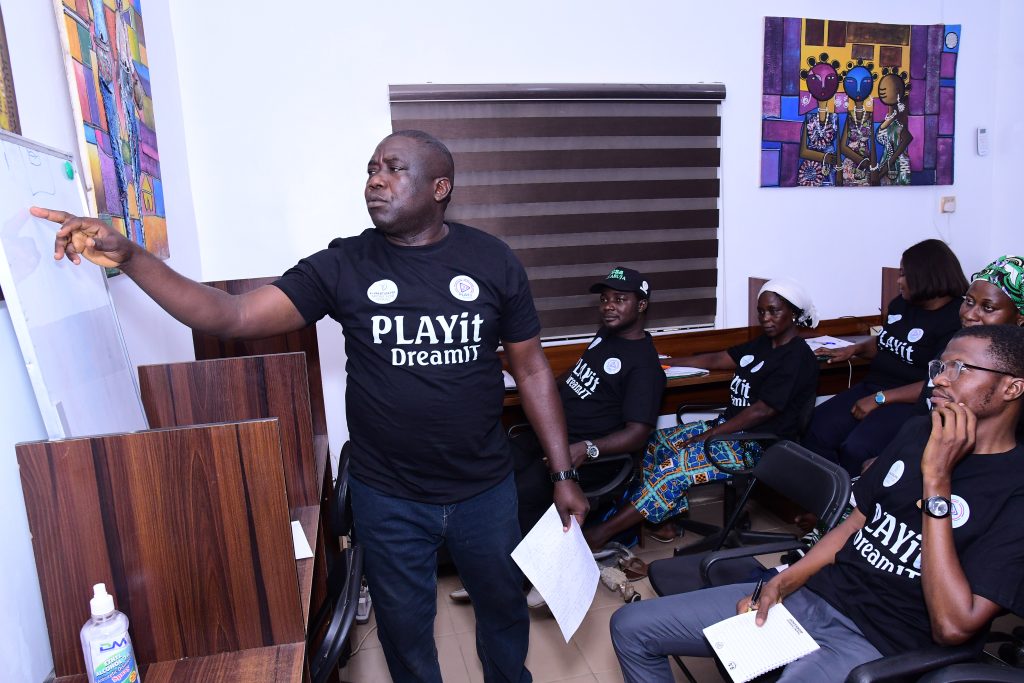

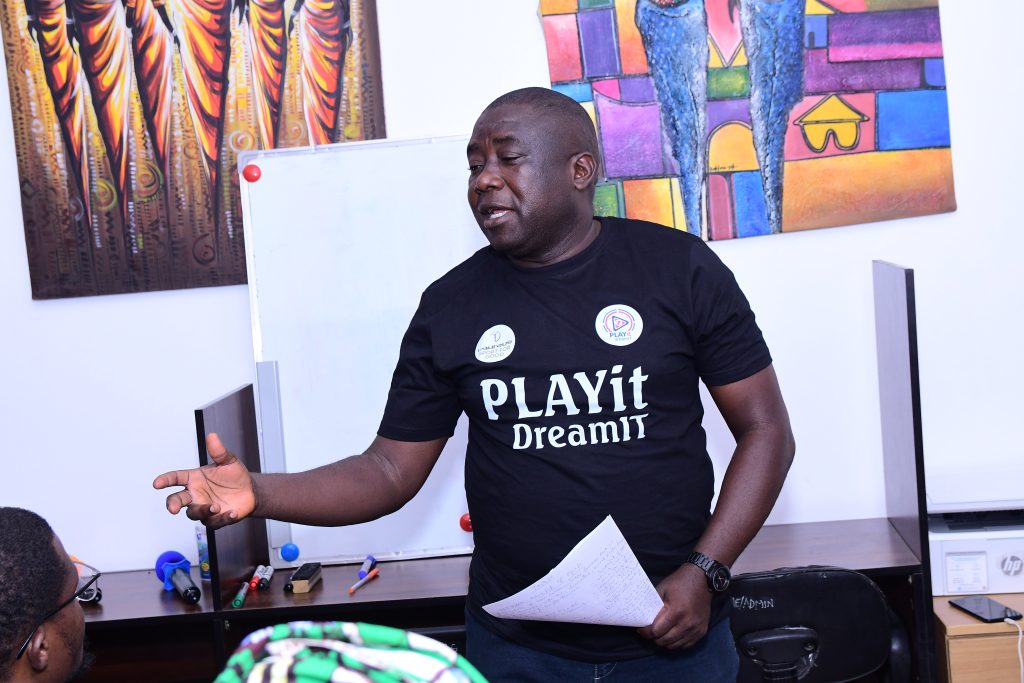

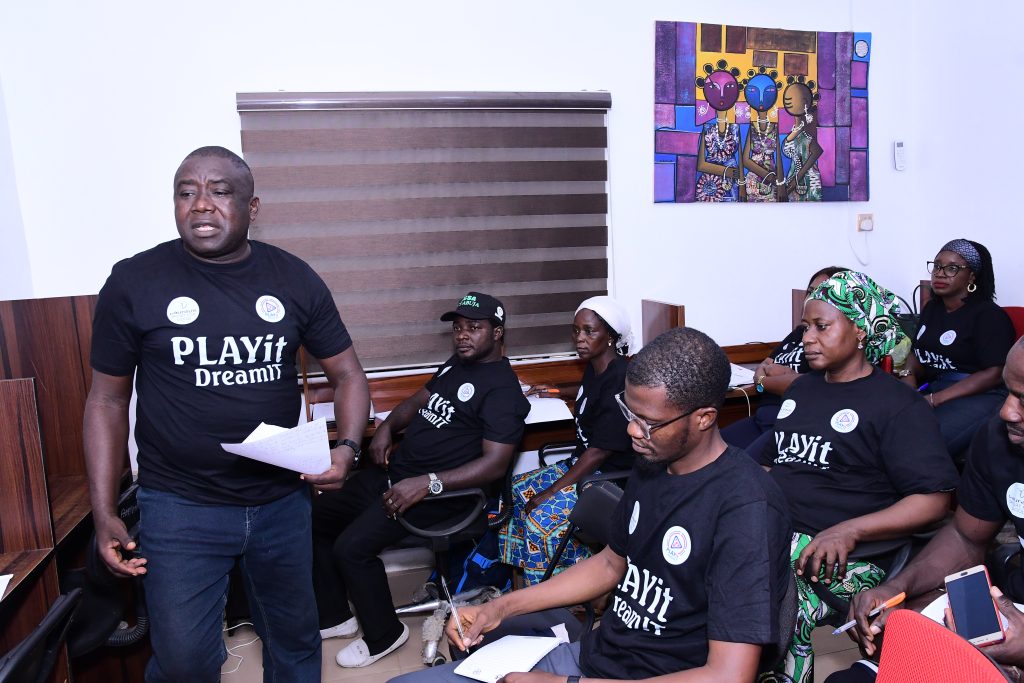

He introduced participants to the diverse world of sports, encompassing various types of physical activities and games that promote fitness, skill development, and social interaction. He highlighted how sports can be a powerful tool for personal growth and community engagement.
The session delved into health advantages associated with regular participation in sports. He explained how engaging in physical activities such as sports contributes to heart health, muscle strength, endurance, and flexibility. He discussed the positive effects of sports on mental health, emphasizing its role in reducing stress, improving mood, and fostering overall well-being.
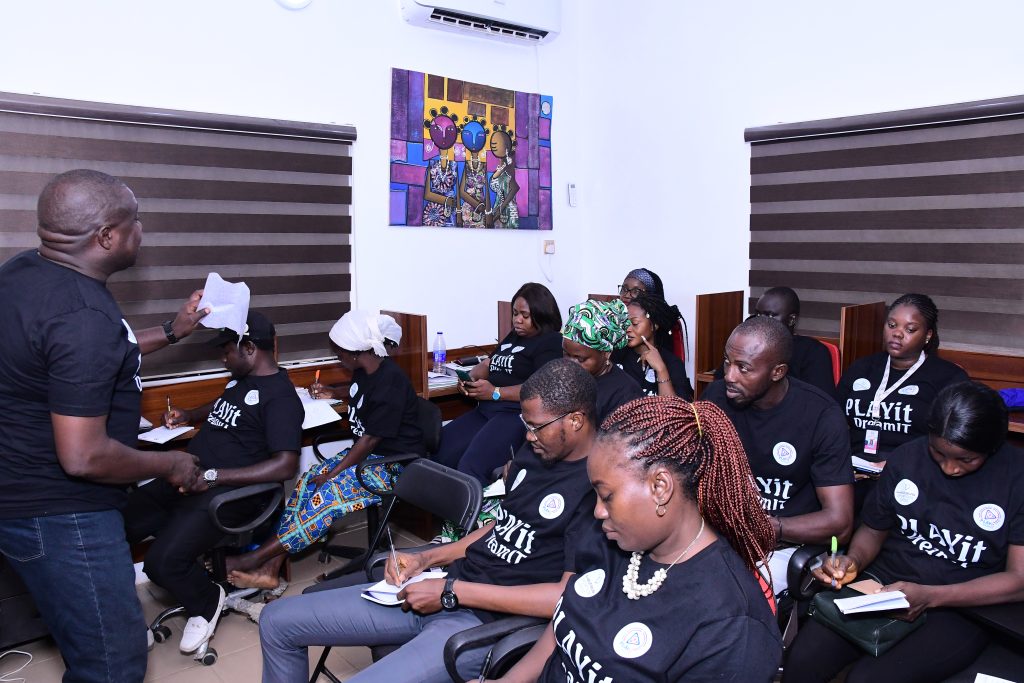

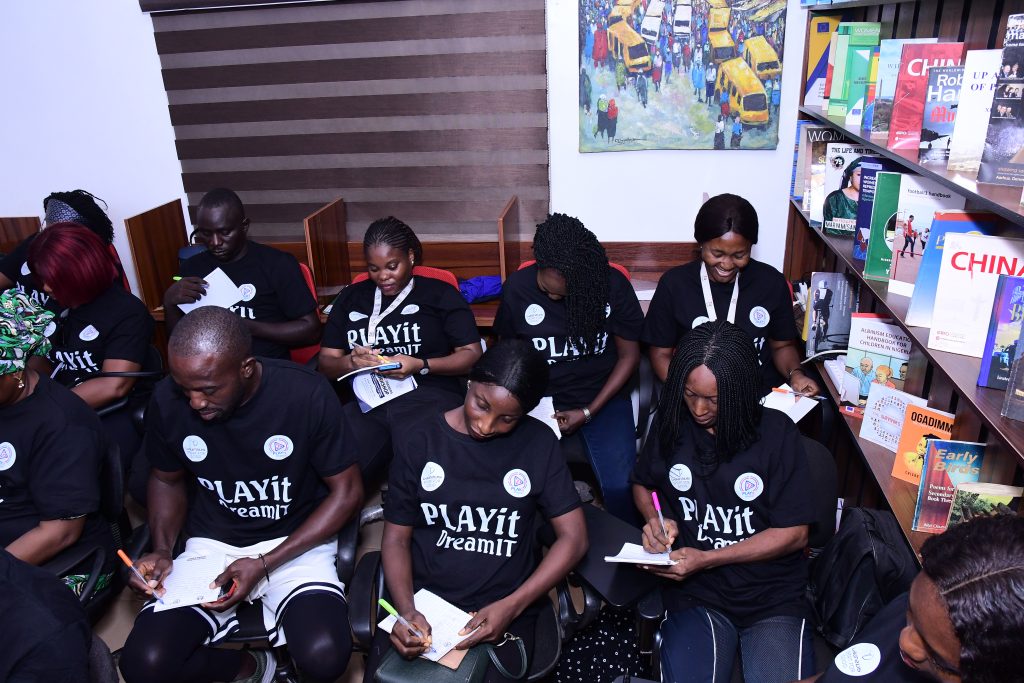

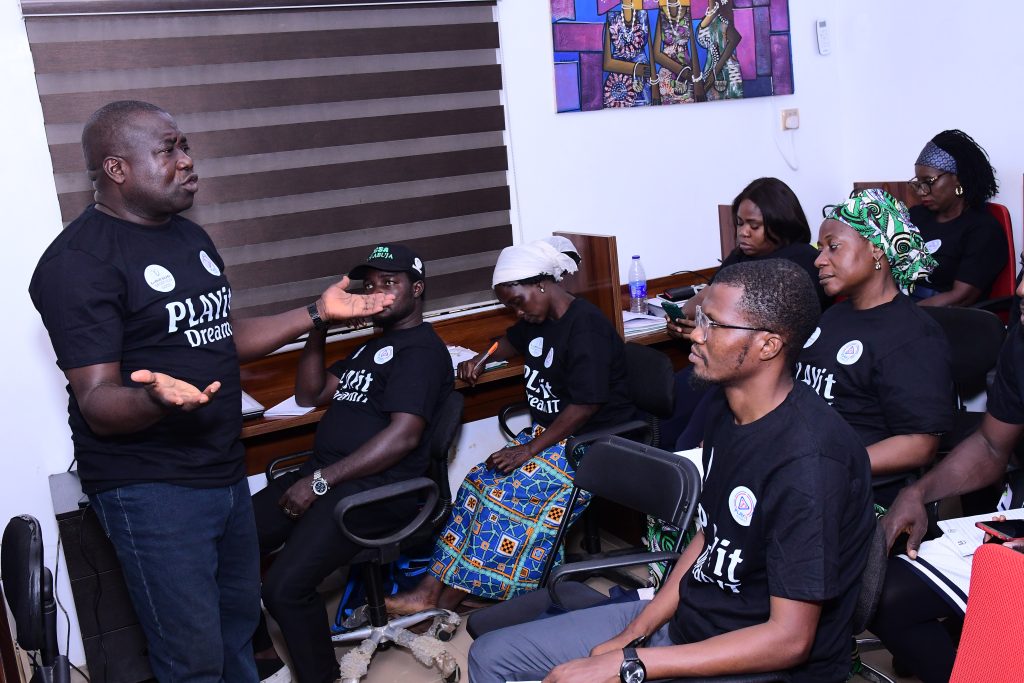

He also emphasized the importance of safety measures and protocols in sports activities. He educated participants on strategies to prevent injuries, such as proper warm-up and cool-down routines, the correct use of protective equipment, and adherence to rules and regulations specific to different sports. This segment aimed to empower participants with the knowledge needed to create a safe environment for athletes of all ages.
Arabinrin Aderonke Ogunleye-Bello led the second session of the day, focusing on the Child Rights Act.
The law outlines the rights every child is entitled to, aiming to protect them from abuse, exploitation, and discrimination. She discussed the importance of these rights, emphasizing aspects such as the right to education, healthcare, protection from violence, and the right to a safe and nurturing environment.
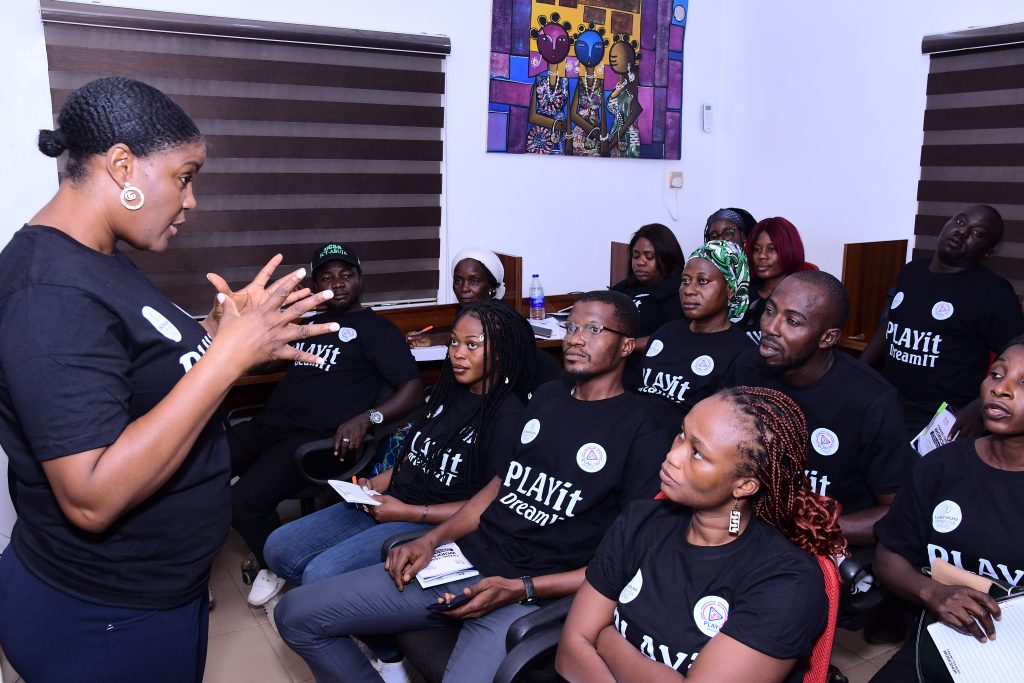

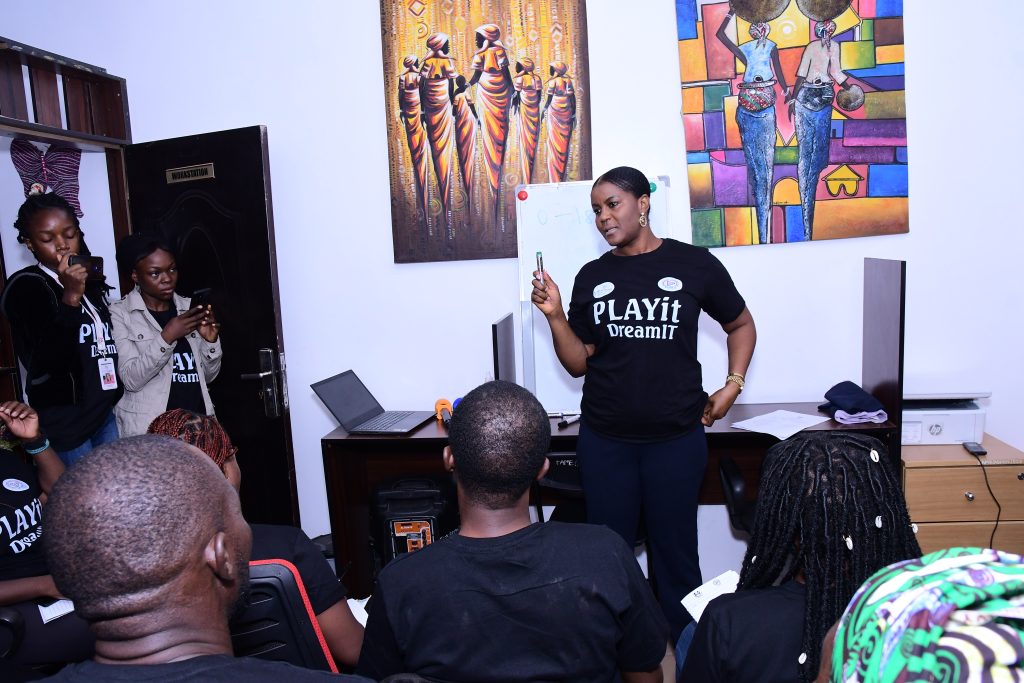

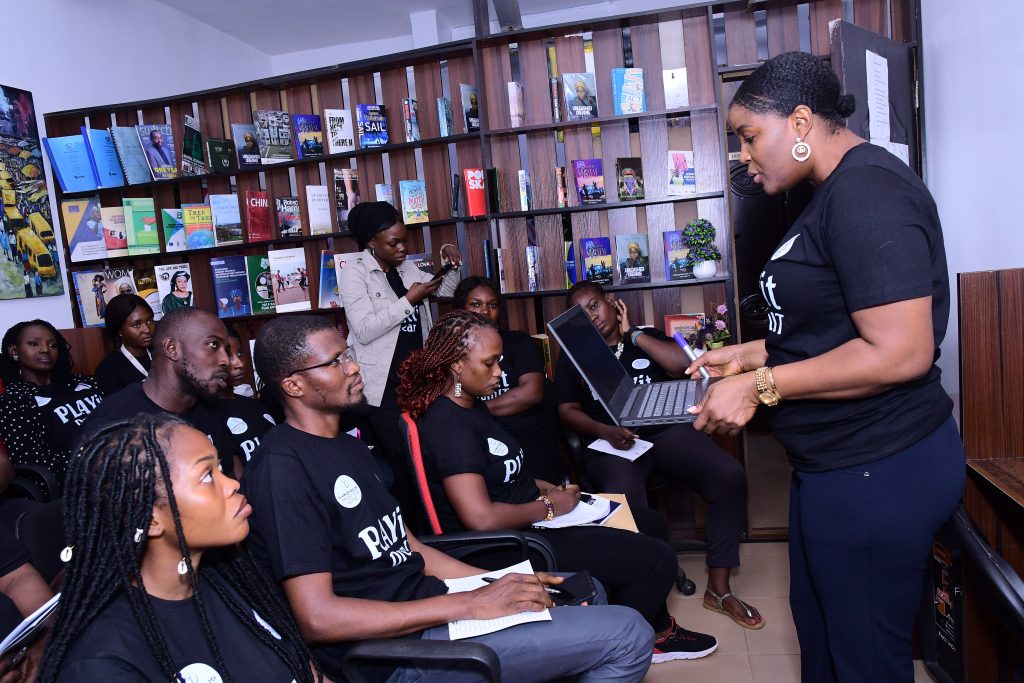

She went into the practical implementation of the Child Rights Act, which includes discussing the roles of governments, communities, and individuals in ensuring children’s rights are respected and enforced. She also highlighted challenges in enforcement and strategies to overcome them.
She shared examples to illustrate the impact of the Child Rights Act in real-life situations. This includes success stories where the Act has been instrumental in safeguarding children’s rights and instances where challenges remain. The session ended with interactive Q&A sessions and discussions among participants.
Ms. Folake Oyebade led the third session, focusing on two critical topics: first aid and child safeguarding.
She provided training on first aid techniques, emphasizing their importance in delivering immediate assistance during emergencies. She covered important skills such as CPR (Cardiopulmonary Resuscitation), wound care, treating burns, fractures, and other common injuries that can occur during sports or other activities involving children.
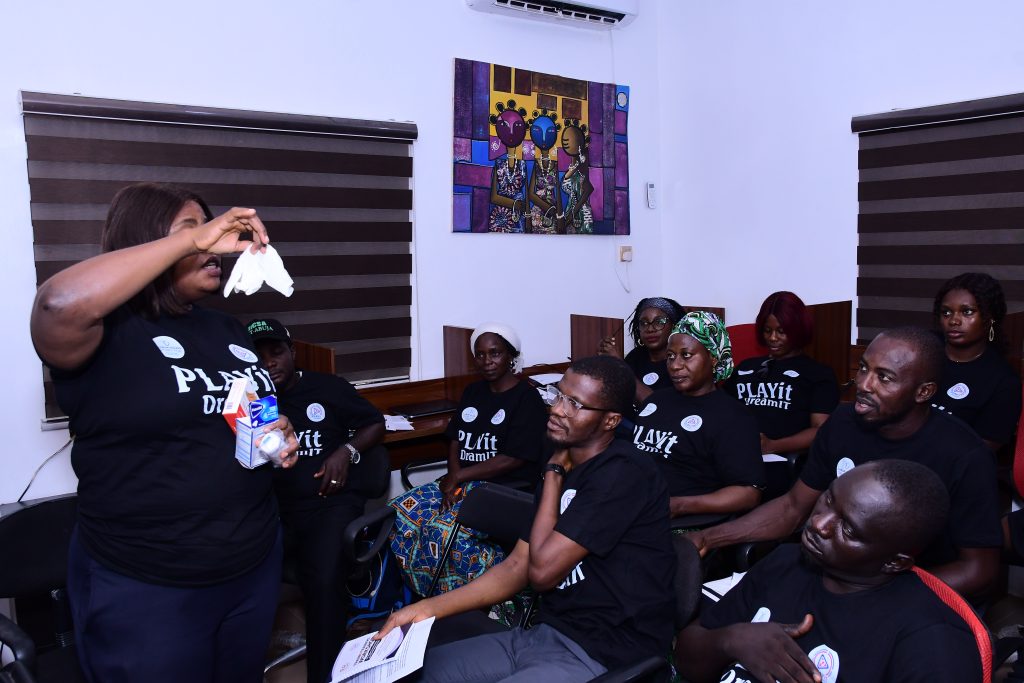

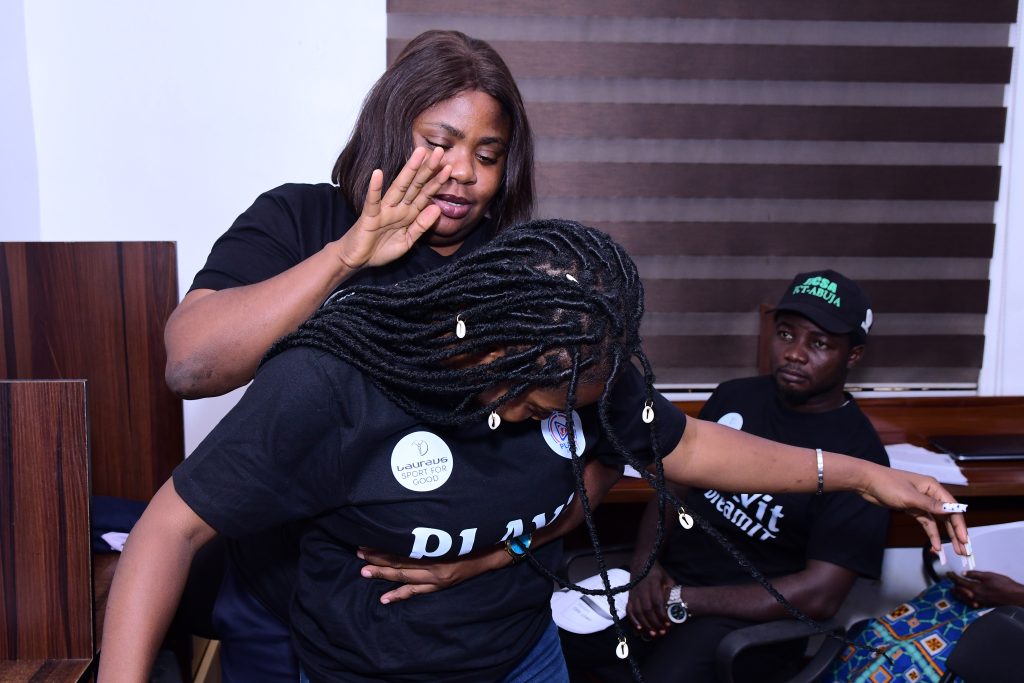

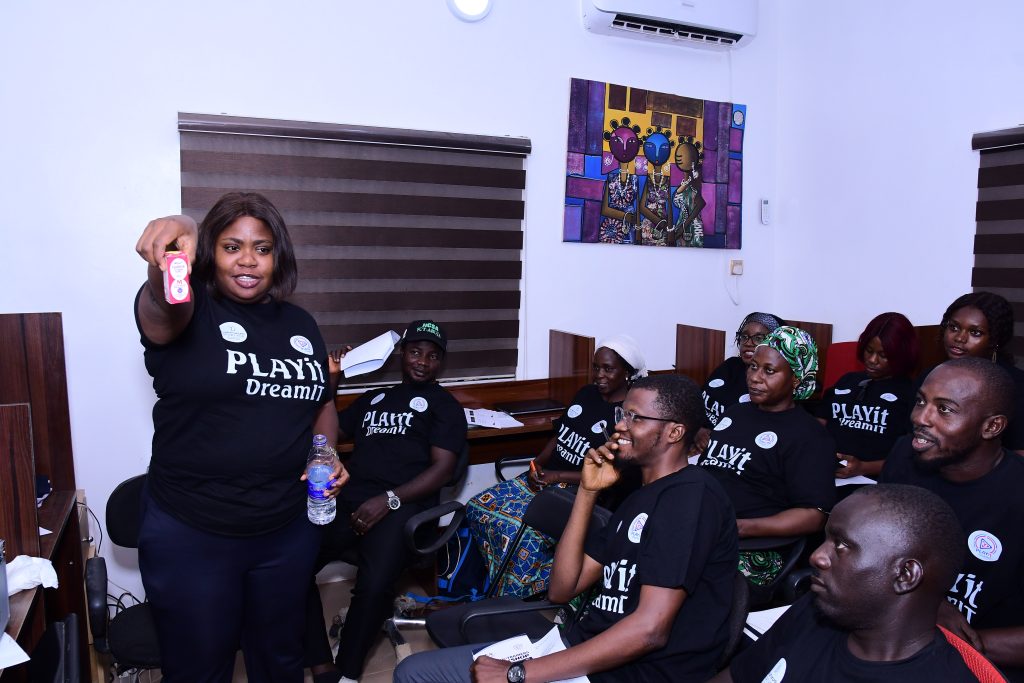

She also addressed the principles and practices of child safeguarding, which are crucial for creating safe environments for children. This included understanding and identifying signs of abuse, whether physical, emotional, or sexual, and knowing how to respond appropriately and sensitively. She discussed protocols for reporting suspicions of abuse, confidentiality considerations, and the importance of creating a culture where children feel safe and supported.
The session covered implementing child safeguarding policies and procedures in different settings, such as sports clubs & community organizations. She highlighted the legal and ethical responsibilities of adults in ensuring children’s safety and well-being, including background checks for staff and volunteers, creating safe physical environments, and maintaining open communication with children and their families.
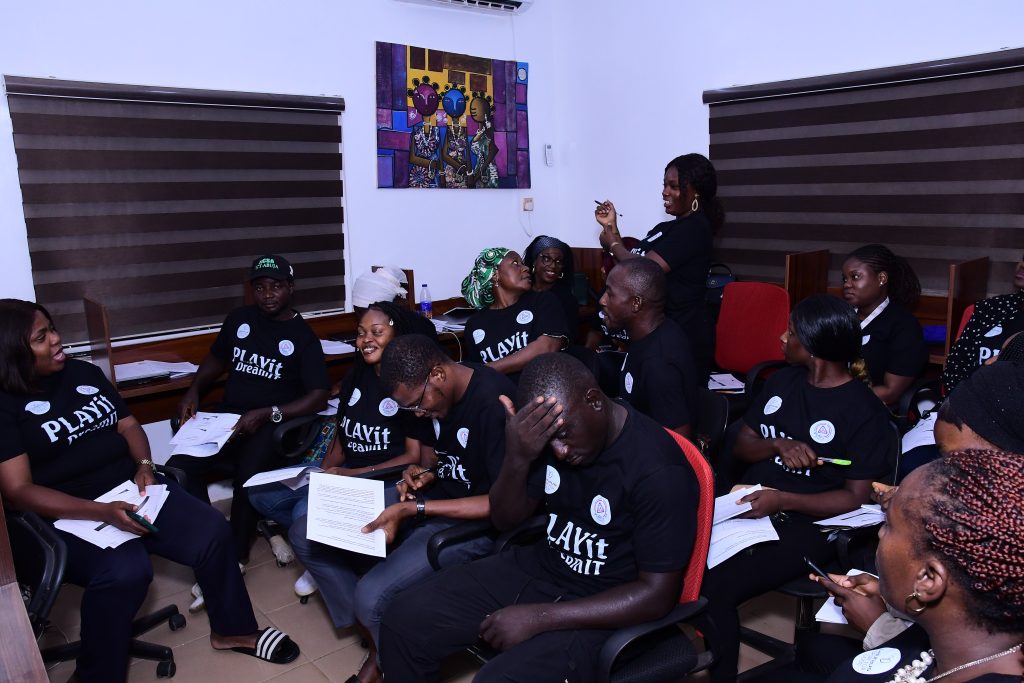

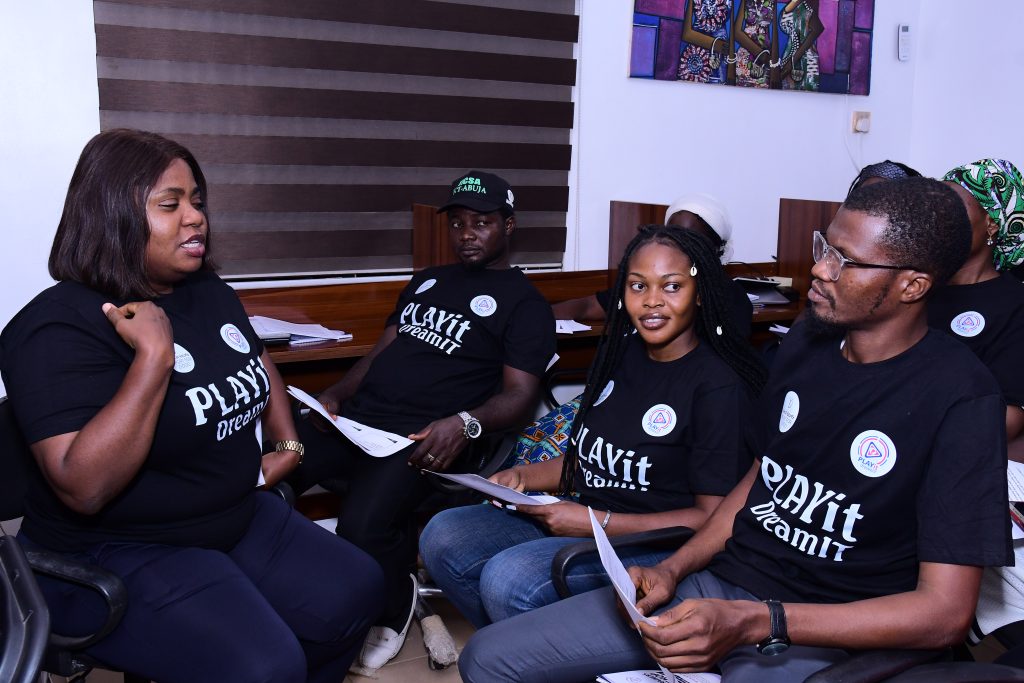

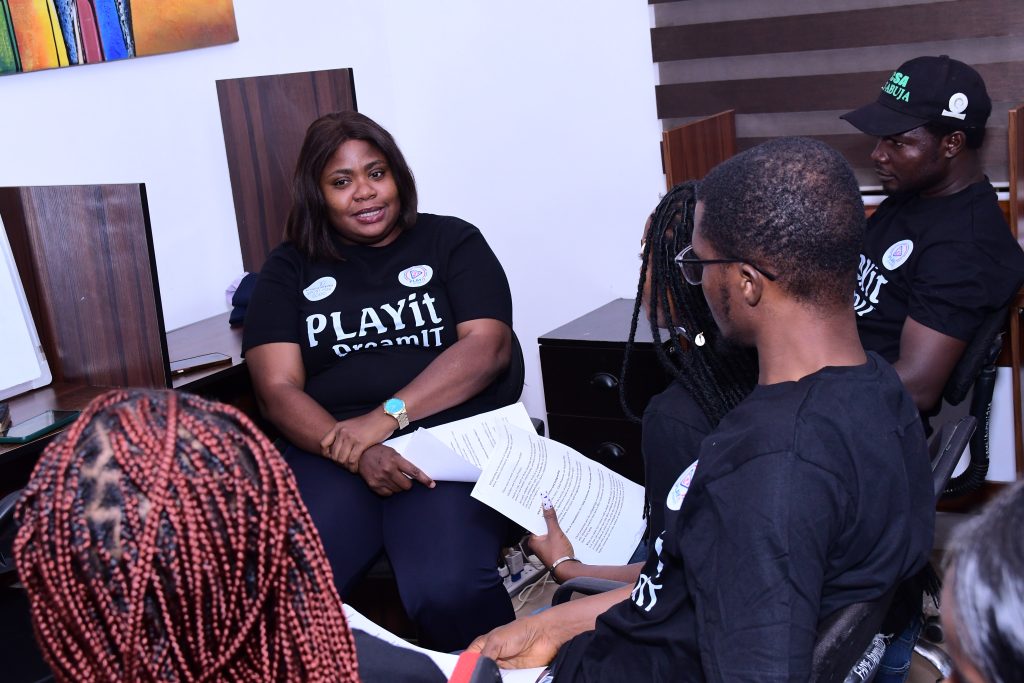

To reinforce learning, she used role-playing exercises and scenarios to simulate real-life situations where participants had to apply their knowledge of first aid and child safeguarding principles.
The session also included discussions to explore participants’ experiences, concerns, and insights regarding first aid and child safeguarding.
The second day of the training session was held at the Area 3 Football Pitch, focusing primarily on practical sporting activities. Coach Ilerika took charge of the first session of the day, actively involving the participants in sports activities.
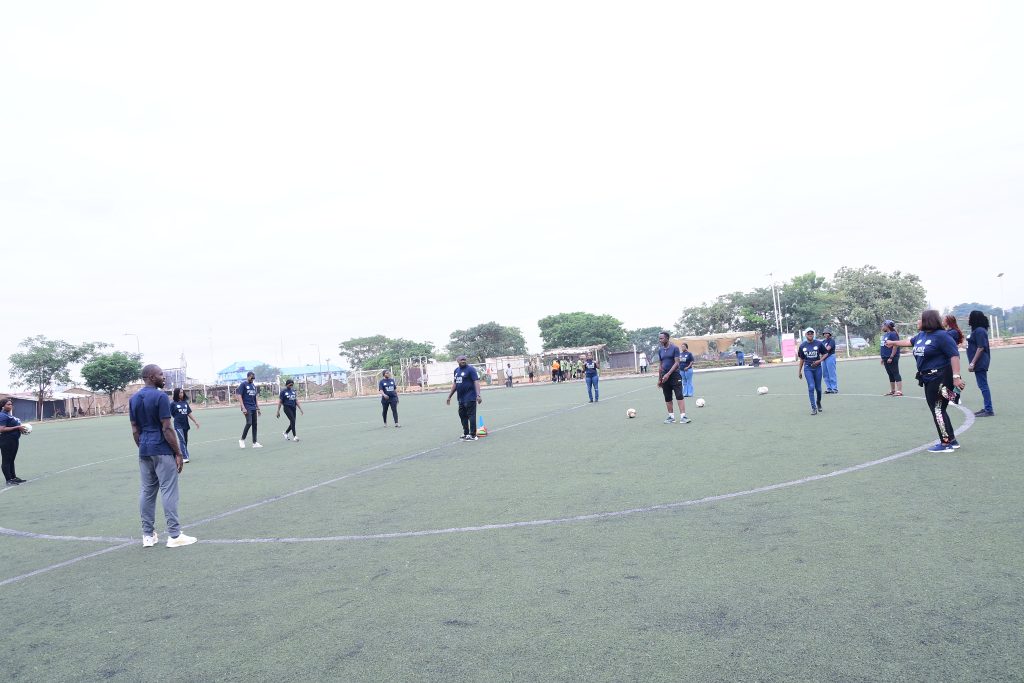

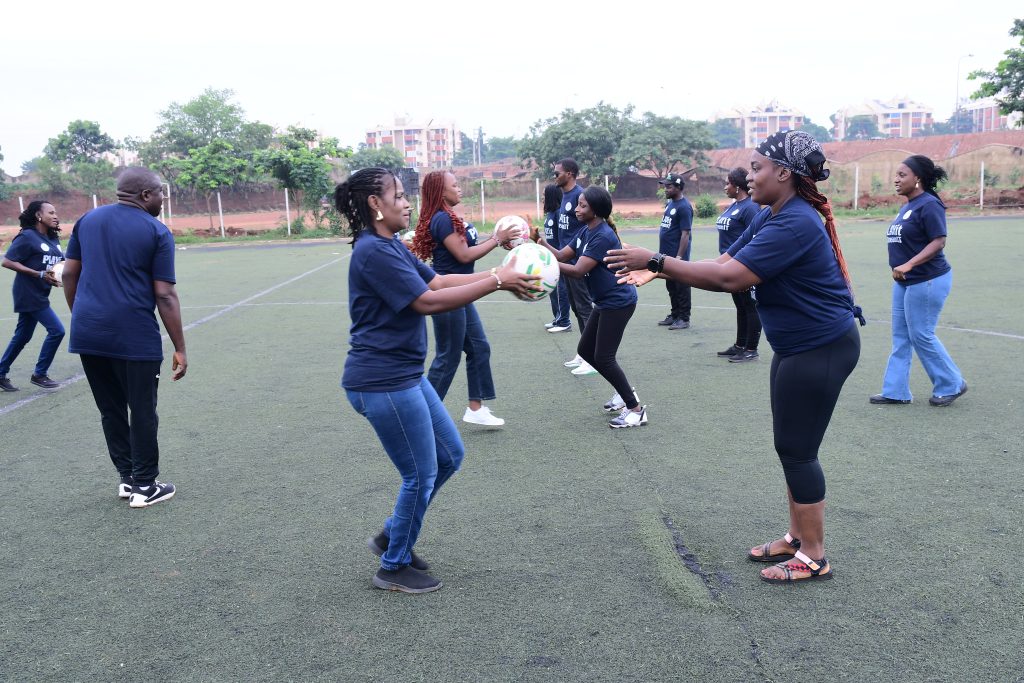

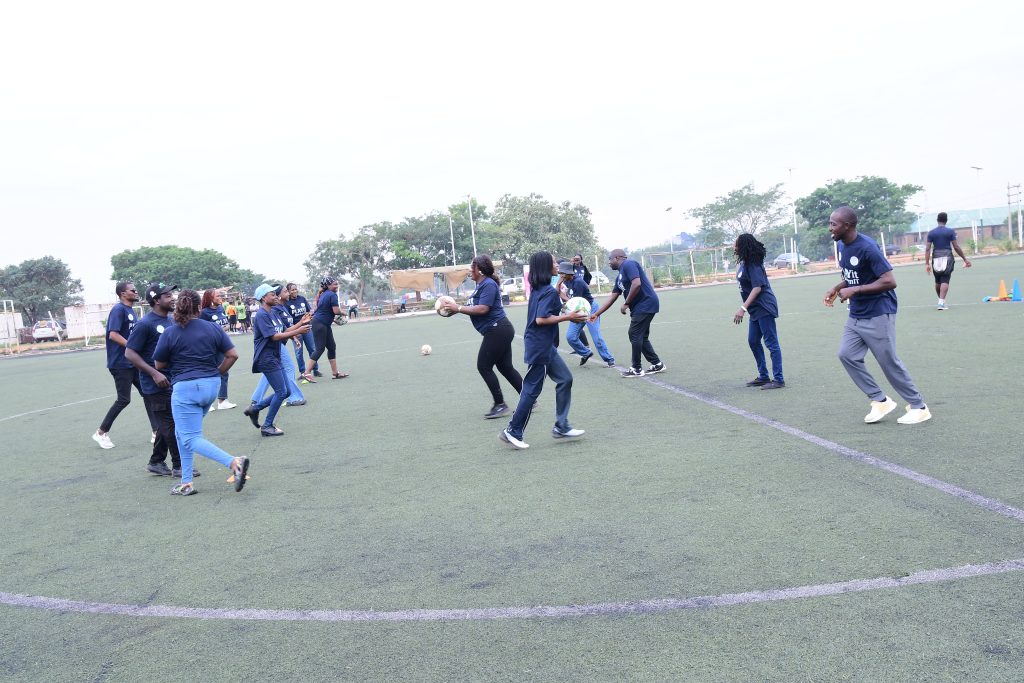

Coach Ilerika structured the session to include physical activities such as warm-ups, a football match, and penalty shootout practice. This practical approach allowed the participants to experience firsthand the techniques discussed and demonstrated during the training.
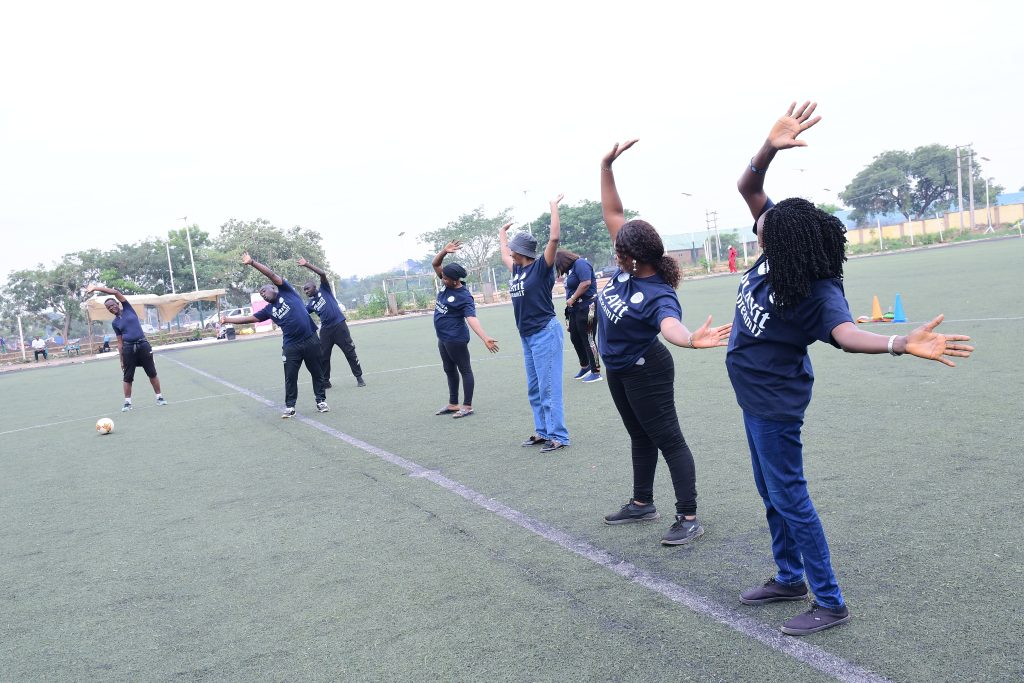

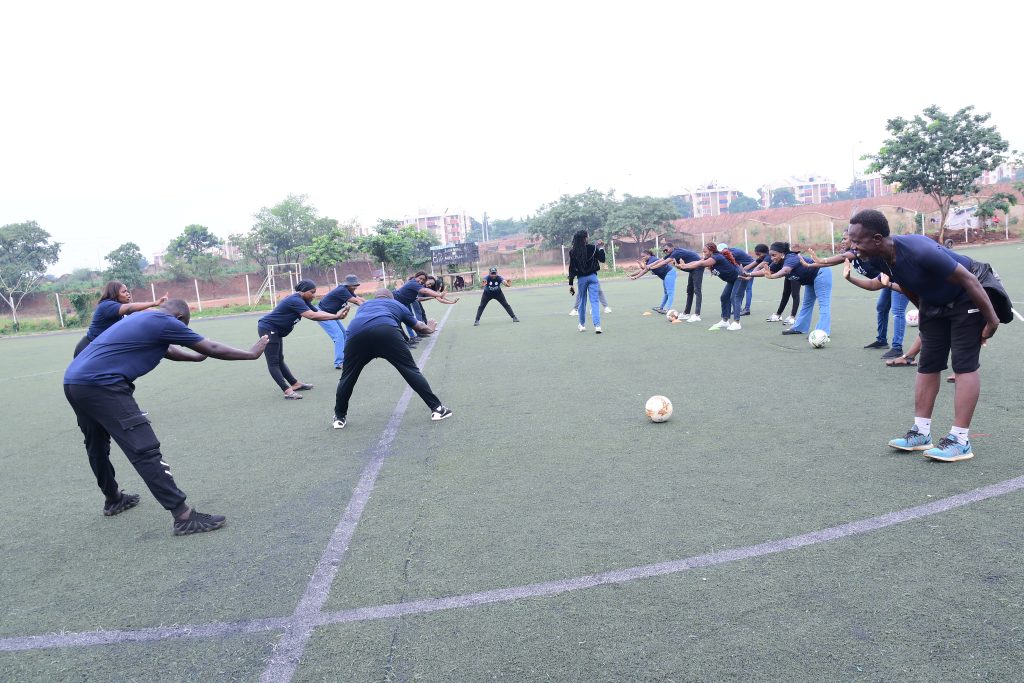

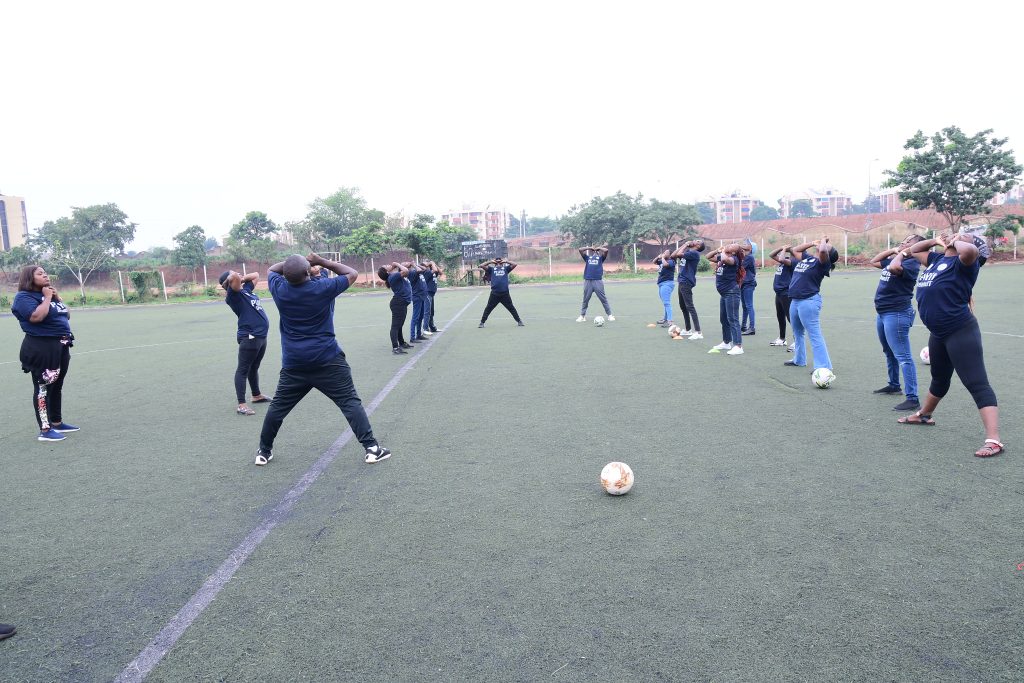

Alongside the practical exercises, Coach Ilerika conducted demonstrations to illustrate proper techniques, strategies, and tactics in sports. The session emphasized active participation, encouraging participants to practice skills and receive immediate feedback from Coach Ilerika. This interactive environment fostered skill development and confidence in executing sports-related activities. By the end of the session, participants gained practical skills and insights into effective coaching methods and techniques.
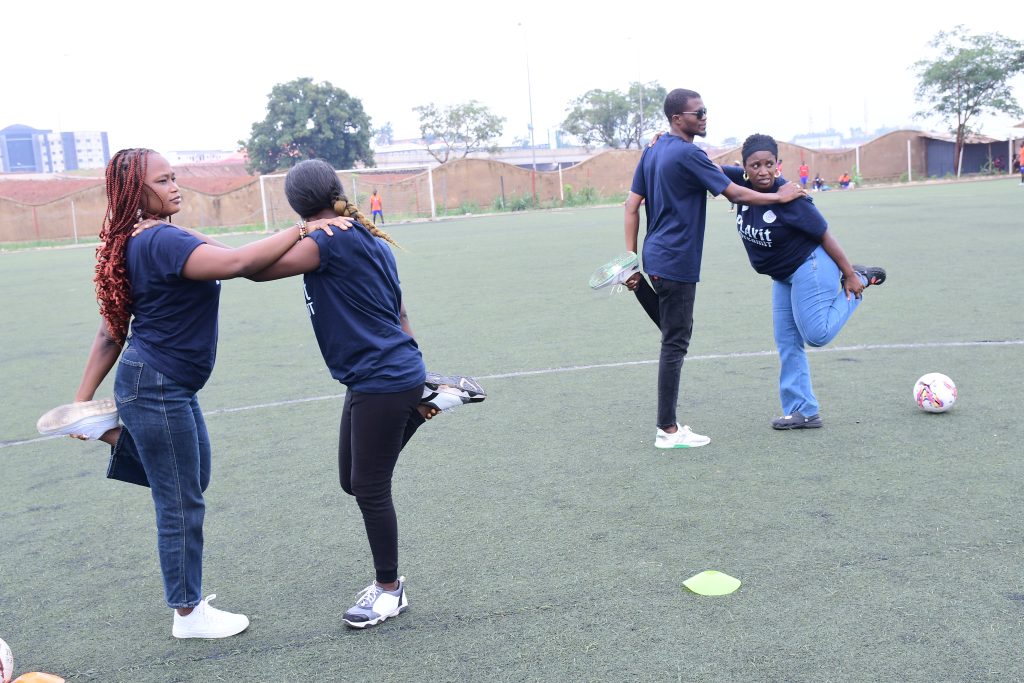

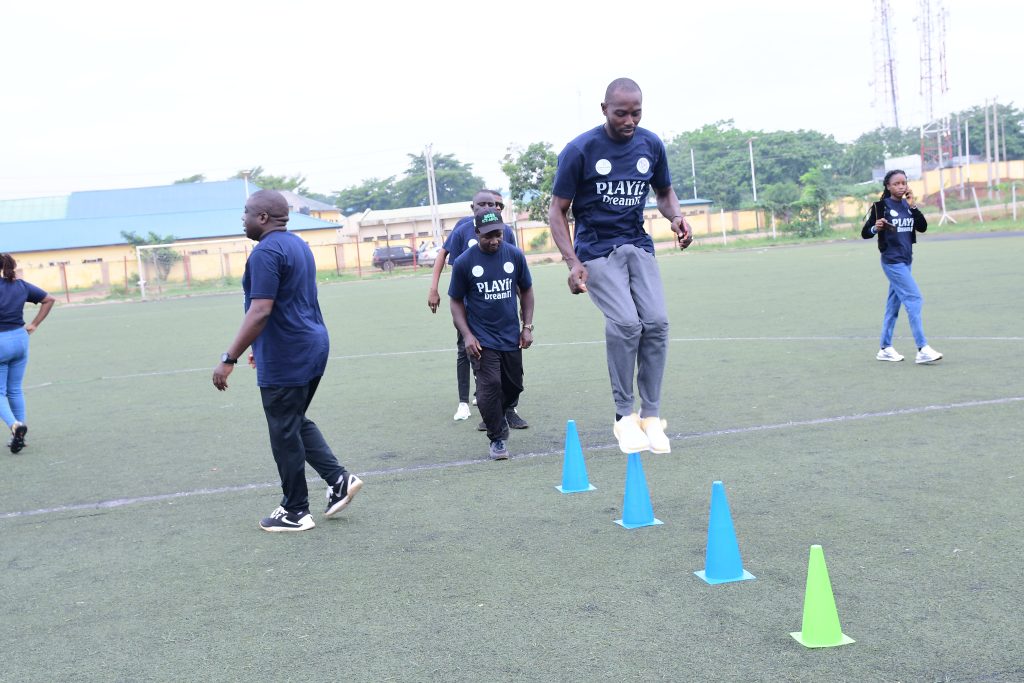

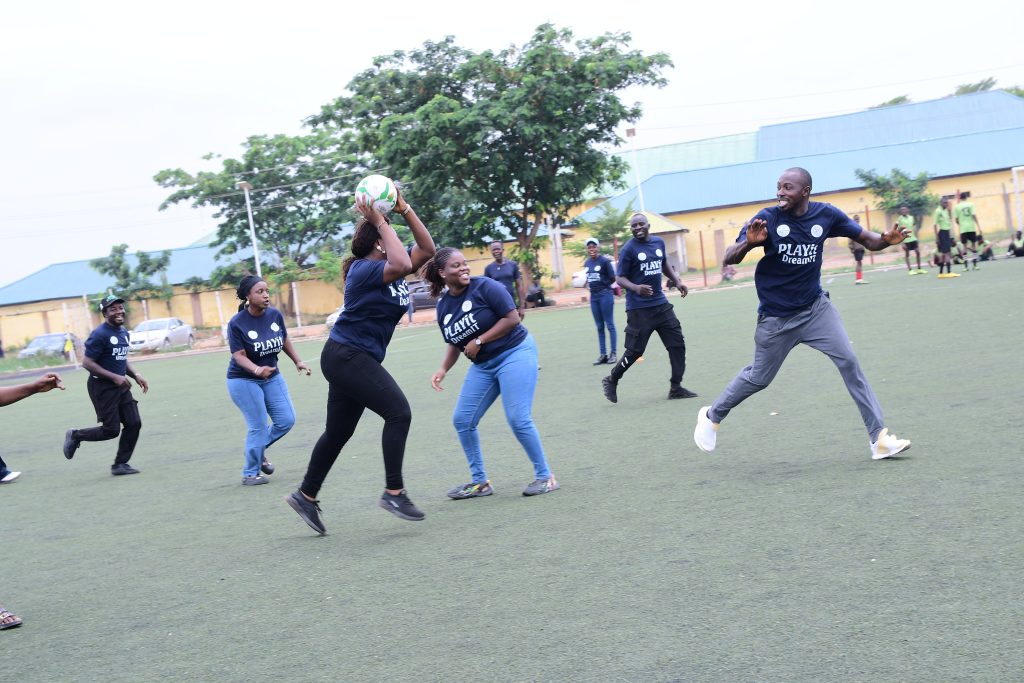

Ms. Folake Oyebade facilitated practical sessions during which participants learned vital skills such as CPR (Cardiopulmonary Resuscitation), wound care, and techniques for treating burns and fractures.
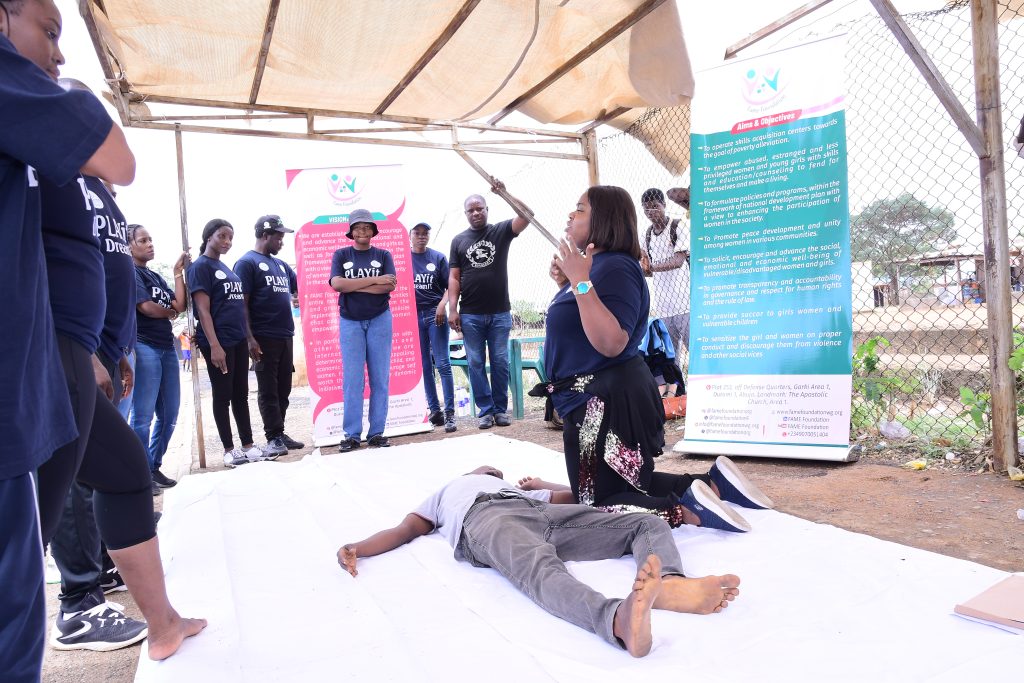

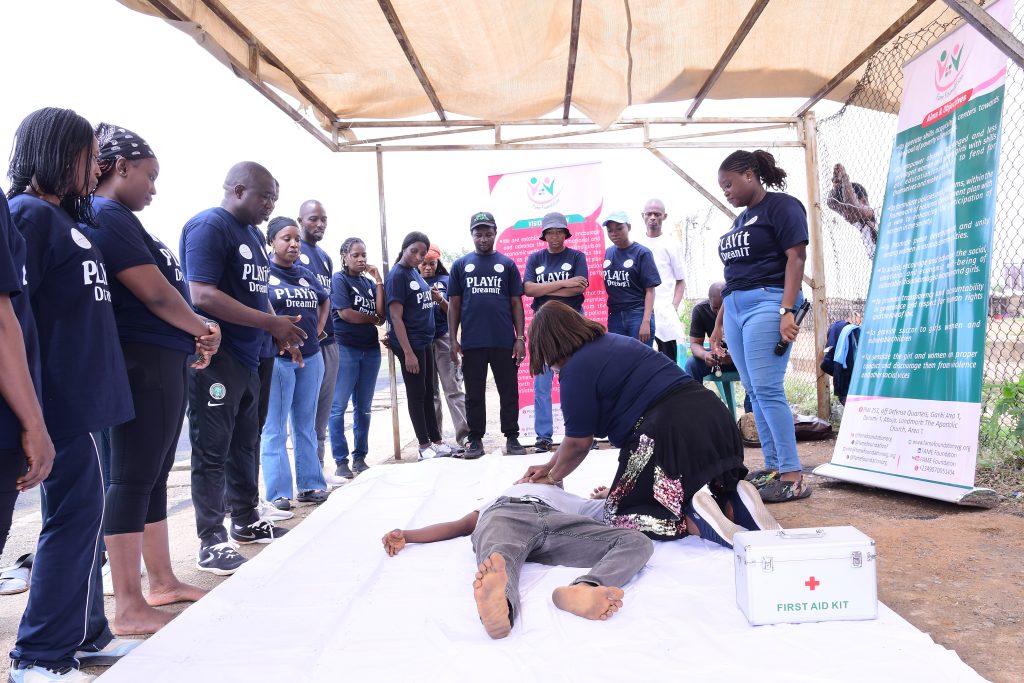

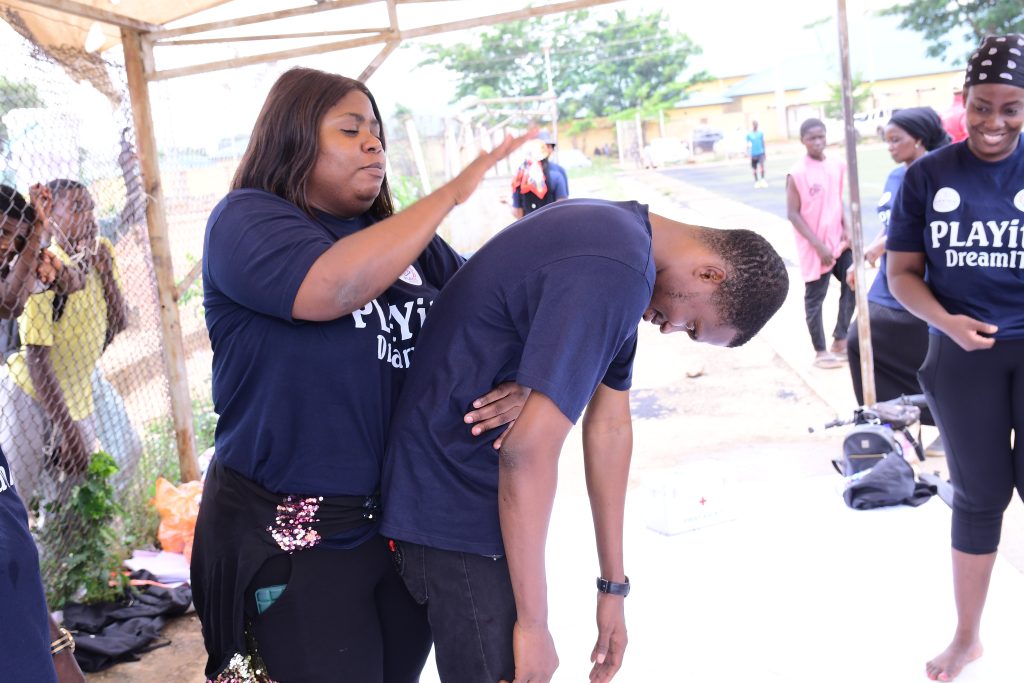

Participants were taught how to perform CPR, a life-saving technique used in emergencies such as cardiac arrest. She demonstrated the correct hand placements, compression rhythms, and rescue breathing techniques. Participants practiced these steps to simulate real-life scenarios and gain proficiency.
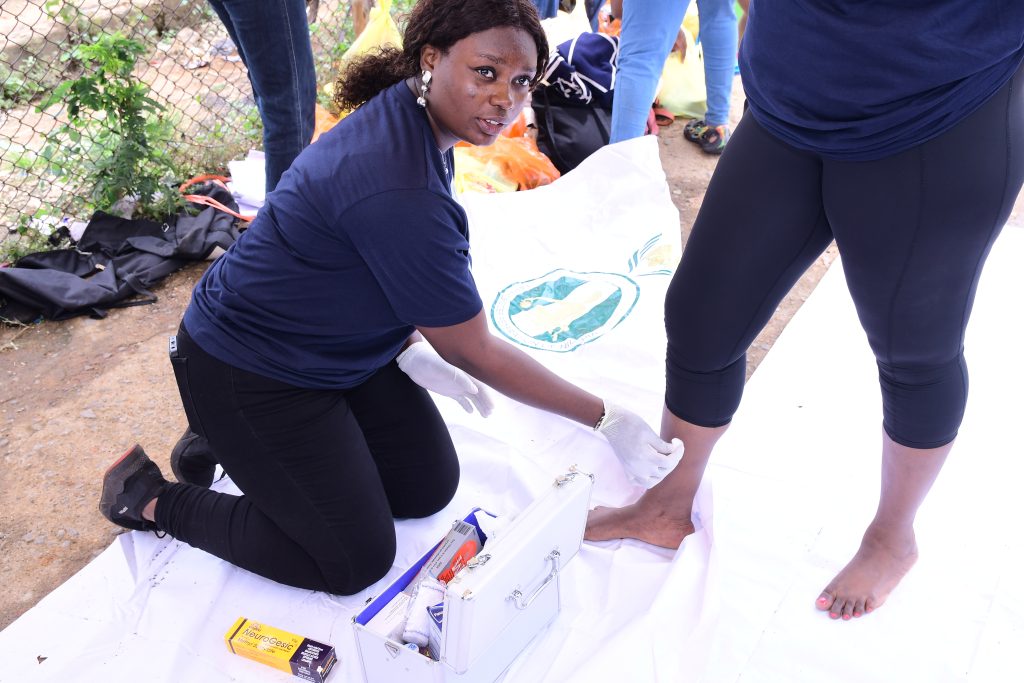

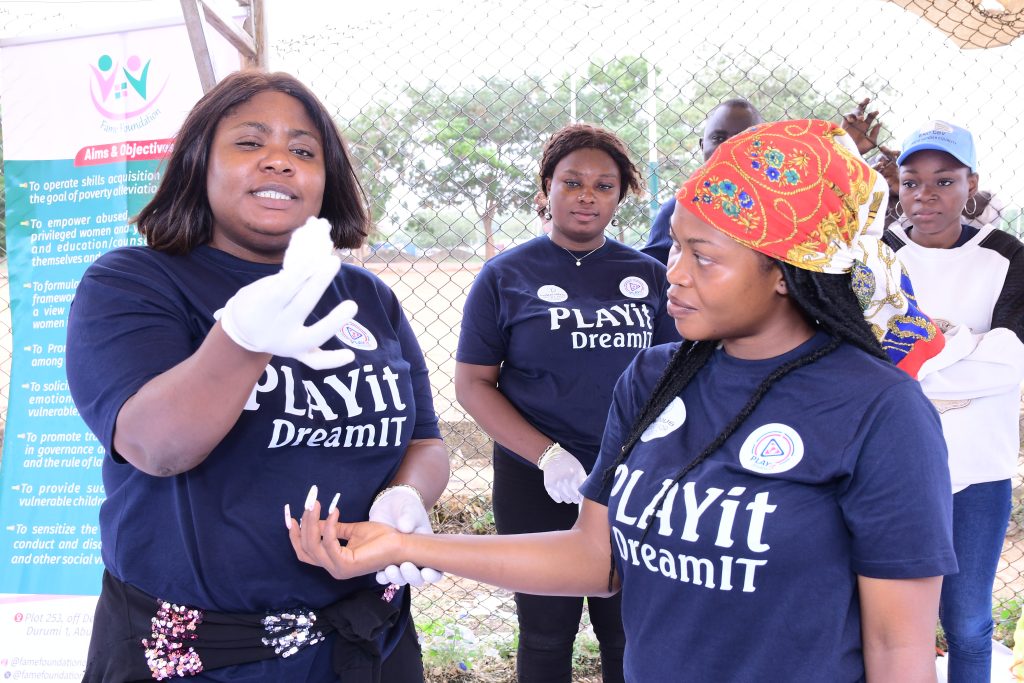

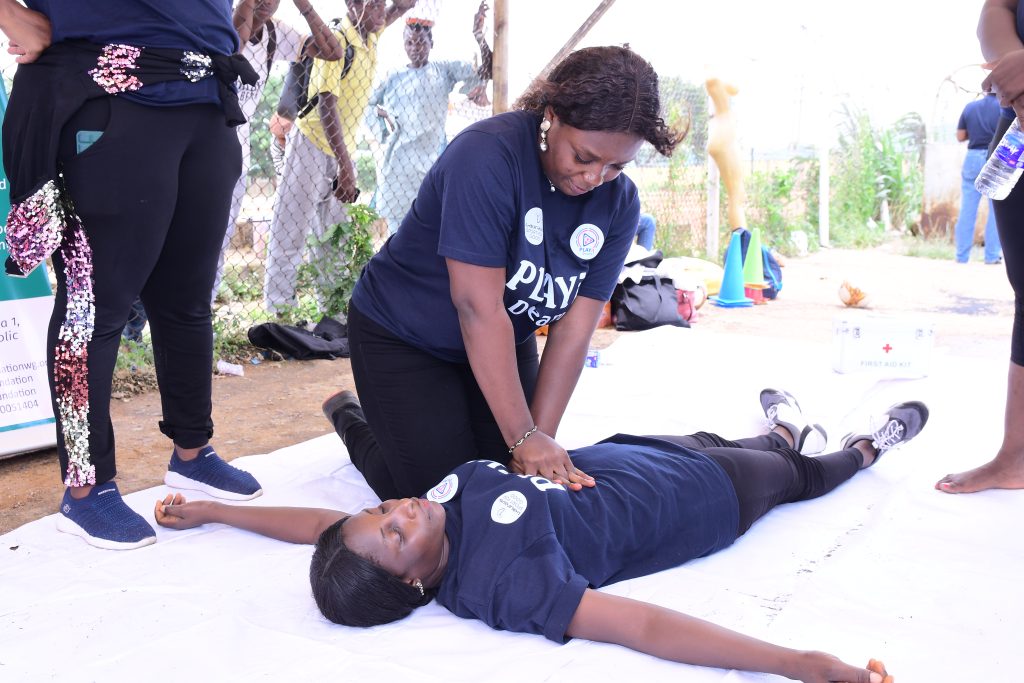

She instructed participants on how to clean and dress various types of wounds to prevent infection and promote healing. This included techniques for assessing the severity of wounds, applying sterile dressings, and securing them properly. Practical exercises involved using bandages, gauze, and other medical supplies.
Participants learned how to provide first aid for burns, including assessing the extent and severity of the burn injury. She demonstrated techniques for cooling burns with water, applying burn dressings, and relieving pain.
She guided participants on how to recognize and stabilize fractures.
These practical sessions were designed to equip participants with hands-on skills and confidence in responding to medical emergencies involving CPR, wound care, burns, and fractures. Ms Folake’s instruction emphasized the importance of quick and effective action in emergencies to improve outcomes and provide critical support until professional medical help arrives.
After the training program, every participant received a certificate acknowledging their active participation and completion of the sessions.
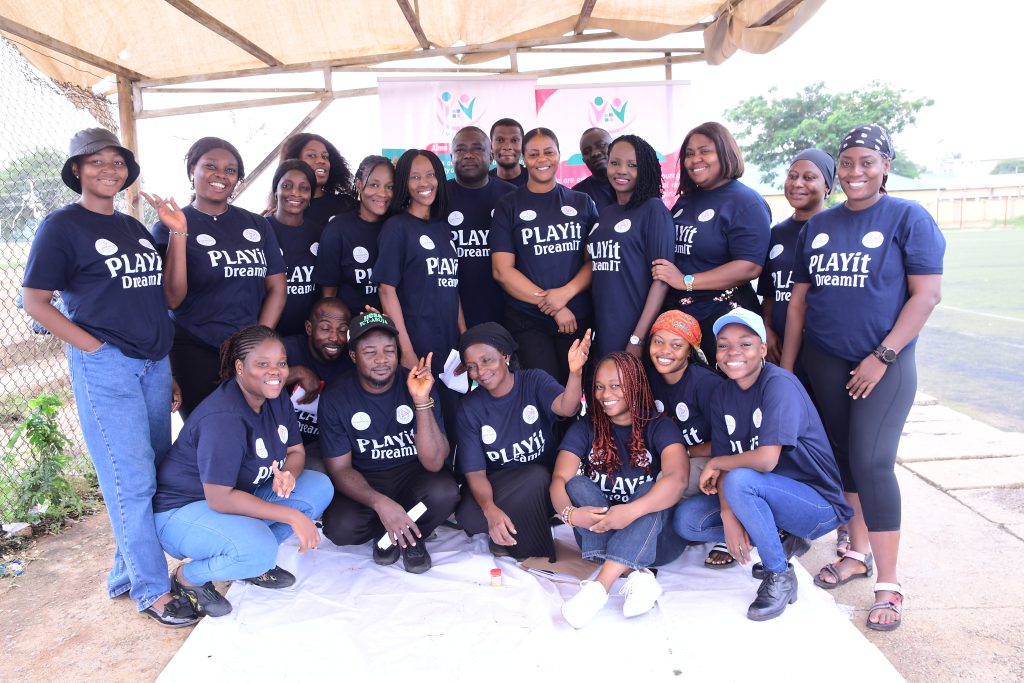

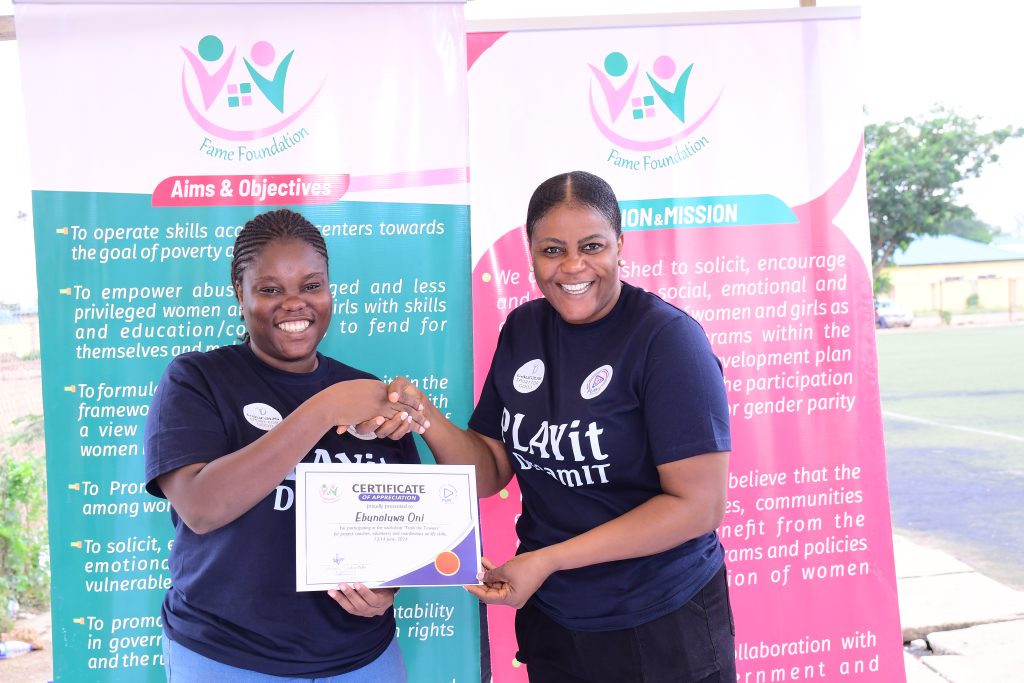

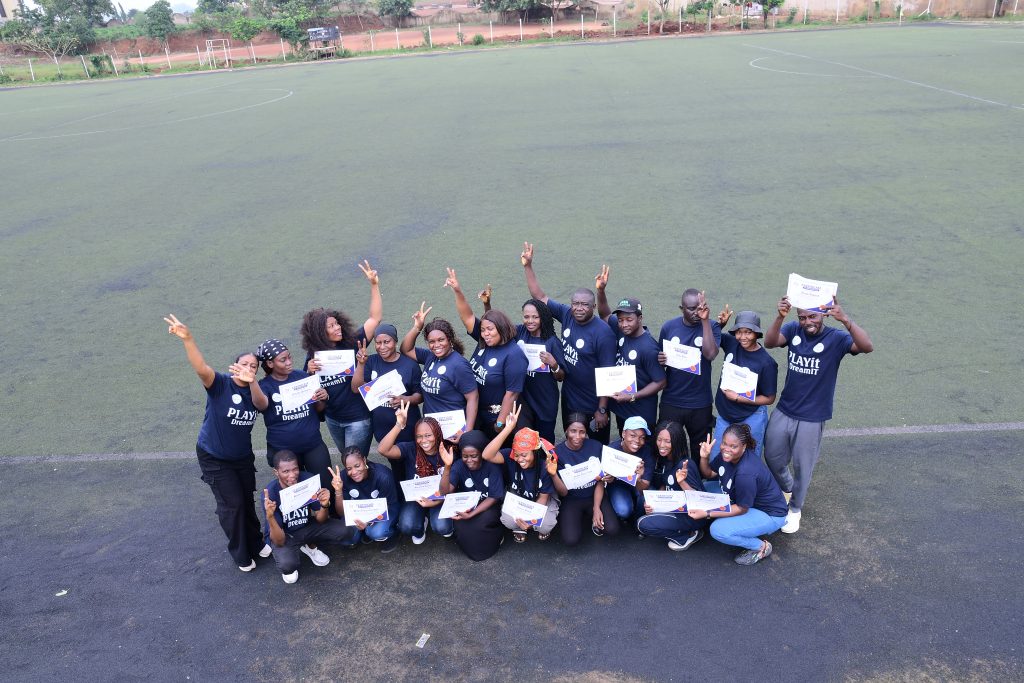

Plot 253, off Defense Quarters, Garki Area 1, Durumi 1, Abuja.
Landmark: The Apostolic Church, Area 1. Federal Capital Territory.
Tel: +2349070051404
Email: info@famefoundationwg.org
